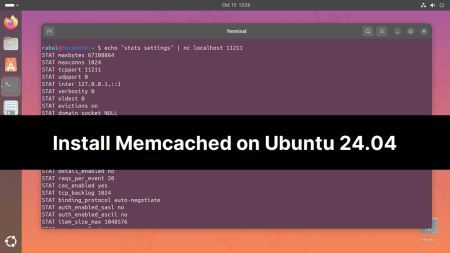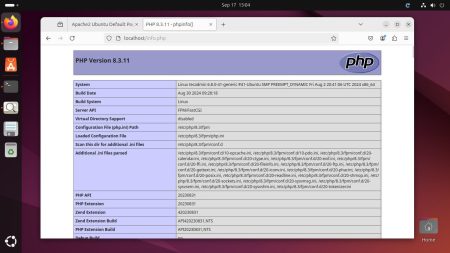The PHP Composer is a package management tool. It removes the hassle of maintaining PHP packages for an application manually. You can easily install all the required packages using Composer. It maintains a list of required packages in a JSON file called composer.json.
This tutorial helps you to install and configure PHP composer on Debian 10 Buster, Debian 9 Stretch, and Debian 8 Jessie systems.
1. Prerequsities
- Shell access to a running Debian system with sudo privilege.
- PHP must be installed and configured, version 5.3 or higher.
2. Install Composer on Debian
You can download the composer script from the getcomposer.org website by running the following command. It will create a composer.phar file in the current directory.
curl -sS https://getcomposer.org/installer | php
Copy composer.phar file under bin directory to make available anywhere in the system. Also, set the execute permission on file. I have changed the filename from composer.phar to the composer for easy use.
mv composer.phar /usr/local/bin/composerchmod +x /usr/local/bin/composer
Type composer at the command prompt. This will provide you composer version details along with options available with the composer command.
composer
Output:______ / ____/___ ____ ___ ____ ____ ________ _____ / / / __ \/ __ `__ \/ __ \/ __ \/ ___/ _ \/ ___/ / /___/ /_/ / / / / / / /_/ / /_/ (__ ) __/ / \____/\____/_/ /_/ /_/ .___/\____/____/\___/_/ /_/ Composer version 2.1.8 2021-09-15 13:55:14 Usage: command [options] [arguments] Options: -h, --help Display this help message -q, --quiet Do not output any message -V, --version Display this application version --ansi Force ANSI output --no-ansi Disable ANSI output
3. Upgrade PHP Composer
The composer has the ability to upgrade itself without downloading again. Simply run the below command from the terminal to upgrade compose on Debian.
sudo composer self-update
Working with PHP Composer
Assuming you have been successfully configured PHP composer on your system. That will help you to manage modules for your application. For example, to install a new module for your application.
Switch to the PHP application.
cd /path/to/php-application
Run the following command to install psr/log module in the application.
composer require psr/log
Output:Using version ^1.1 for psr/log ./composer.json has been created Running composer update psr/log Loading composer repositories with package information Updating dependencies Lock file operations: 1 install, 0 updates, 0 removals - Locking psr/log (1.1.4) Writing lock file Installing dependencies from lock file (including require-dev) Package operations: 1 install, 0 updates, 0 removals - Downloading psr/log (1.1.4) - Installing psr/log (1.1.4): Extracting archive Generating autoload files
Composer will automatically create or update composer.json file at application root directory. Now, the application can use the functionality provided by the module.
The above command will install the latest version of the module. You can also define the module version you want to install for your application. If the module is already installed, it will automatically downgrade/upgrade the
package to the specified version.
composer require psr/log=1.0
The module no longer required can be removed with the following command.
composer remove psr/log
All the above commands also update composer.json file accordingly.
Conclusion
In this tutorial, you have found instructions to install composer on a Debian Linux system. You can install composer globally to allow access to all users and applications. Also, you can install composer for a specific directory.



5 Comments
Thank You. Very helpful
Gracias, me sirvio bastante
Thank you.
Great!!
Thanks a lot
thanks.